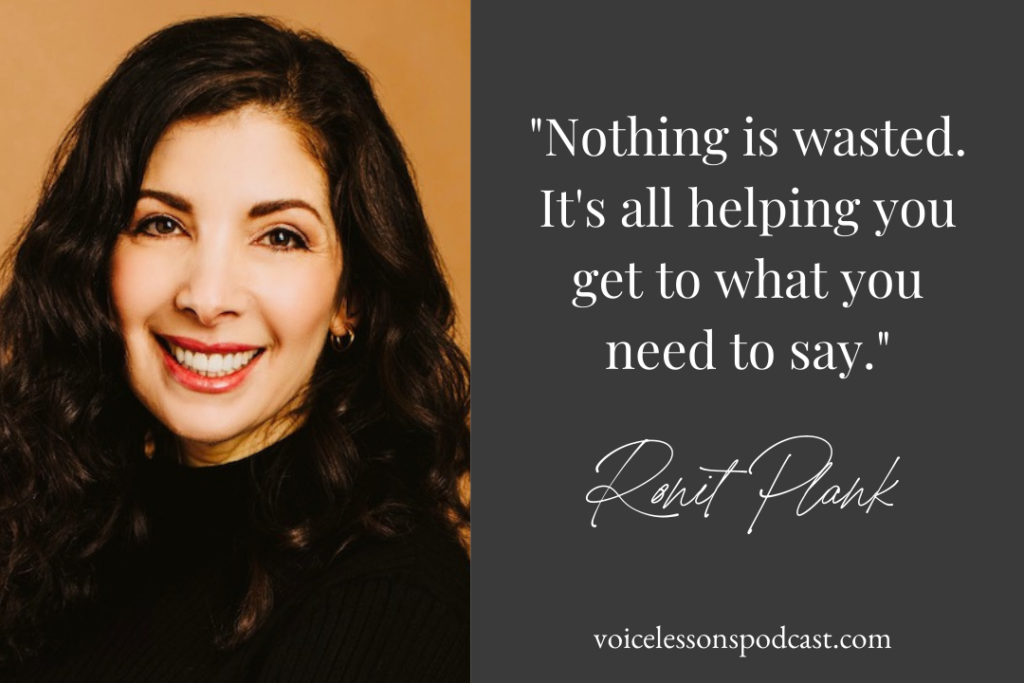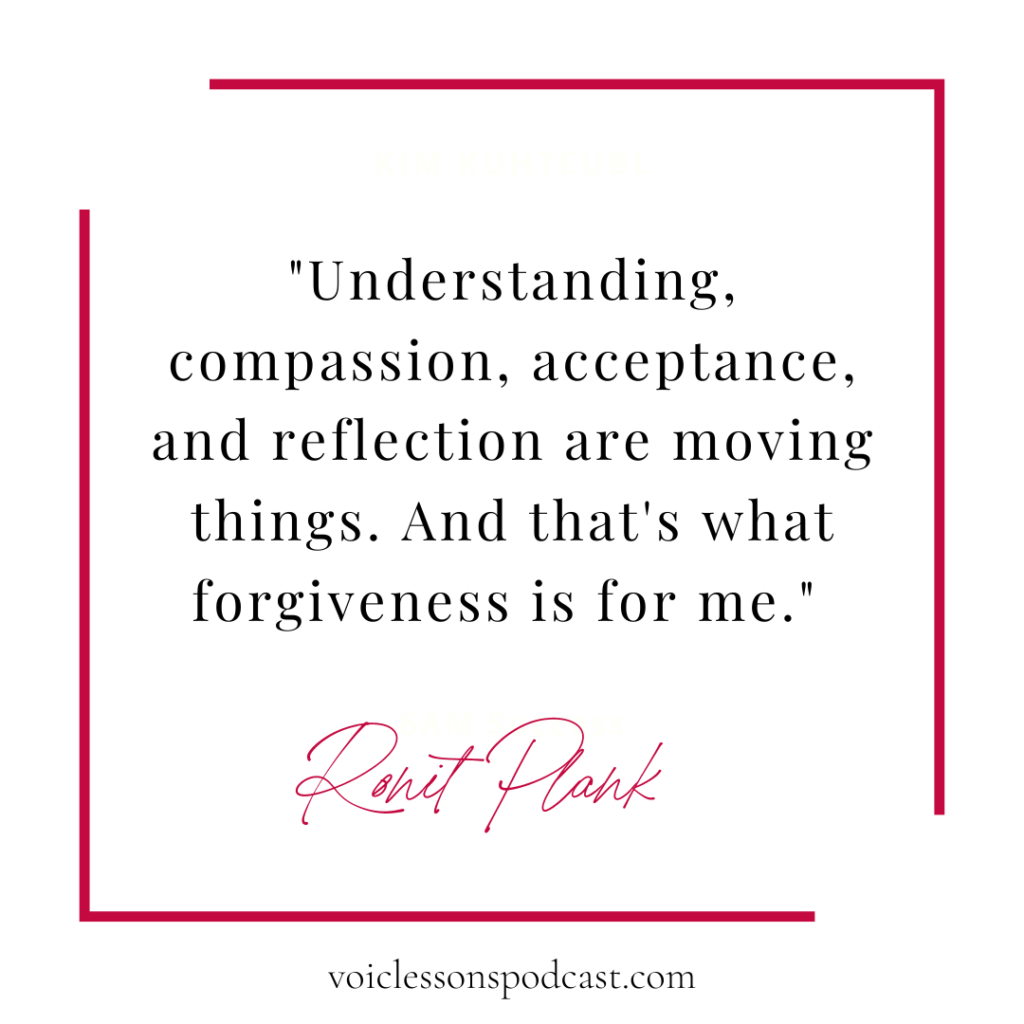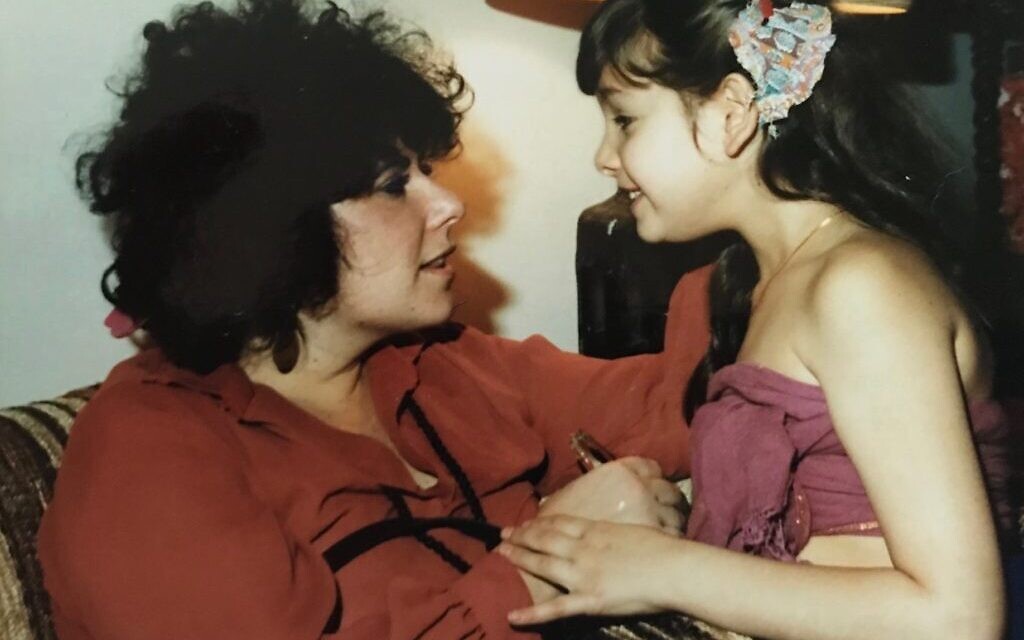
LISTEN: APPLE PODCASTS | STITCHER | SPOTIFY
TOPICS DISCUSSED IN THIS EPISODE:
- Ronit spent her early childhood on Kibbutz Lahav in Israel.
- What set Ronit’s family up for hardship and what happened next?
- Her mother found solace in Osho and left when Ronit was five to follow him.
- Rajneesh, also known as Bhagwan Shree Rajneesh, and later as Osho was an Indian mystic, some would say cult leader and founder of the Rajneesh movement.
- Being vulnerable in your relationships.
- How Ronit found the ability to forgive her mother.
- Turning pain and loss into a gift.
- How high control groups affect the relationship kids have with their parents.
- Forgiveness vs. Acceptance.
- What was the moment that Ronit started looking into what happened?
- Where is Ronit and her Mother’s relationship today?
- Reliving uncomfortable memories.
- When did Ronit’s creative writing turn into something more and was it passed down from her parents?
- How Ronit got into writing and what the most difficult part is for her?
- Writing about trauma. Does it help you heal?
- Memoir writing advice and encouragement.
- How to take up space.
- If you don’t tell your own story someone else is going to tell it for you.
- How did becoming visible with her story affect her relationships with family members?
- What didn’t make it into the book?
- Ronit’s take on women in leadership and feminine leadership.
- Why Ronit was afraid to join the single women’s sisterhood.
Ronit Plank with her mother in 1980, the first year after her mother returned from a year at Bhagwan Rajneesh Shree’s ashram in Pune, India. Her mother wears the colors worn by the Rajneesh sannyasins (followers), and a mala (beaded necklace) with the photo of cult leader Bhagwan Shree Rajneesh. (Courtesy)
#LESSONUP:
(8:35) A friend of hers that she did meet in Seattle told her about this guru who was coming out of India with dynamic meditation, which he had organized and developed and he had books and tapes. And I think my mom was really interested because she wanted to feel better. She wanted to find purpose. She was looking to transcend life and the way she felt about herself.
(11:56) Forgiveness comes up a lot in my book. The question I get a lot is how did I do that with my mom? And I would say that for me, it’s more about acceptance and understanding of what occurred and reflecting on it. And I don’t know that forgiveness has ever come into my idea of it, although it’s very much what people want to know. It is a natural question. How do you have a relationship with her? I see my mom a couple of times a week. She lives five minutes away. She comes over on Friday nights and cooks Shabbat dinner. We’re closer now than we ever were, which is stunning, even to me.
(13:24) I know it sounds strange to go back and tell a story of pain and loss as sort of a gift, but to be in this safer place as an adult now to be a mom, to have found my life partner, to feel like I understand so much more, it is a gift and it’s safe for me to go back and really think about what happened and what I went through. It’s almost like going back in time in a way, and like scooping up the smaller, younger me and like unpacking everything for myself so that I could understand it and really feel it.
(29:17) It shouldn’t be a question of do you like this? Because my soul needs to do this.
(40:30) There’s a thing about forgiveness that makes me feel like, okay, you’re forgiven, stamp of approval, we’re done close the book. I don’t think it’s like that. Just like the stages of grief, they’re not actually stages. They all happen at the same time in a different order and they continue. I think with forgiveness, lI can get upset if I think about certain things in any relationship where I’ve been hurt. I can rise up and get angry again or feel less than, or feel like, wait, why did I put an end to my sadness? Why am I saying it’s okay now? Is that forgiveness? I don’t know. I think it’s like a working movement toward trying to understand. It’s like alive to me. Forgiveness makes me feel like it’s over. And it’s not. And to me, understanding compassion, acceptance, and just thinking and reflection is a moving thing. And that’s what it is for me.
(42:25) Women have more room in their leadership to learn where maybe they could be doing better. I think that maybe because so many women have imposter syndrome, there might be this aspect of our leadership where we are open to learning better ways to do things or better ways to be heard. Whereas maybe men in leadership aren’t always, or maybe it’s harder for men when the ego gets involved. My previous self was extremely insecure and I still have sort of that child in me that doesn’t believe I’m good enough. And I don’t know how many women share that. I’m sure there are men who share it too, but I just don’t know that all women come out with their fists ready to go.
(47:57) We’re not used to hearing these stories from women still. We’re in 2022 but we’re still not used to hearing that a woman is a whole person with a different set of objectives.
RESOURCES/FACTS:
Ronit Plank
https://www.psychologytoday.com/us/blog/addiction-and-recovery/201910/the-mother-wound
When you remember a past event, you’re actually remembering the last time you remembered it, not the event itself
https://torontolife.com/life/mom-welfare-dad-hippie-grandparents-two-richest-people-toronto/
PIN IT:



Comments +